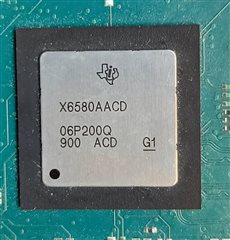Other Parts Discussed in Thread: UNIFLASH, , AM6548
Hello All,
I have a question regarding the issue we have when we try to use the Uniflash tool on AM6526 SR2.1.
My configuration is:
PDK - pdk_am65xx_1_0_7 (processor_sdk_rtos_am65xx_6_03_00_106)
We have our custom board based on Sitara AM6548 SR2.0. (some of the boards were assembled with AM6526 SR2.1.) on which we use QSPI flash as a primary and UART (MCU_UART) as a backup boot device.
We are using the Uniflash tool to write images (SBL, SYSFW and APP) to NOR flash, and we didn't have any problem using this tool on our board with SR2.0.
But on boards with SR2.1. the Uniflash tool does not work. When Flashwriter application is loaded to R5 core, the problem occurs when sysfw header frame is sent then the target responded with 0x18.
The other strange thing on SR2.1. is while receiving the header sequence, in parallel the R5 is sending character 'C' (0x43), and the problem with that is that this sending is not triggered by Flashwritter application on R5. (see picture below)
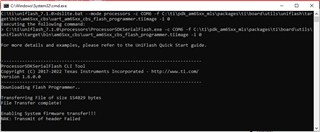
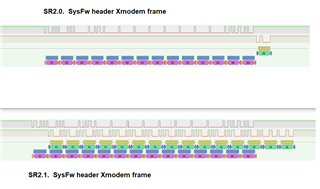
I tried to debug this problem. After the Flashwriter app is loaded to R5 core, I used XDS200 to connect to the R5 core and I am seeing that each time when the frame is received some of the received bytes are overwritten with 0x00 so checking of CRC failed and the application crash on R5 core.

Then I tried to use the Flashwriter application from SDK 8.0. and I can confirm that after loading the Flashwriter application to SR2.1. I have the same problem when I tried to send SYSFW header as I explained above.
I made the same test on SR2.0. with Flashwriter application from SDK8.0 and I can confirm that receiving xmodem header frame and loading of SYSFW to M3 core works normally.
Do you have any idea what can be wrong with the configuration of MCU UART on SR2.1?
Do you have some suggestions on how to solve this problem?
Best regards,
Novica




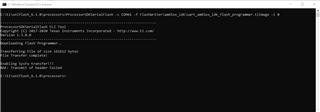
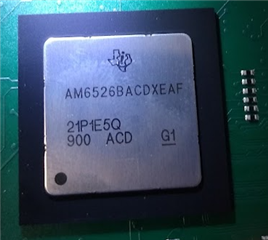 \
\